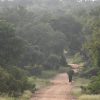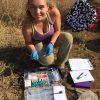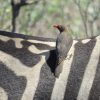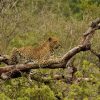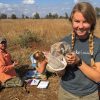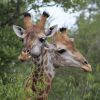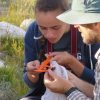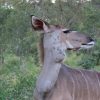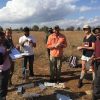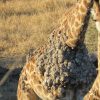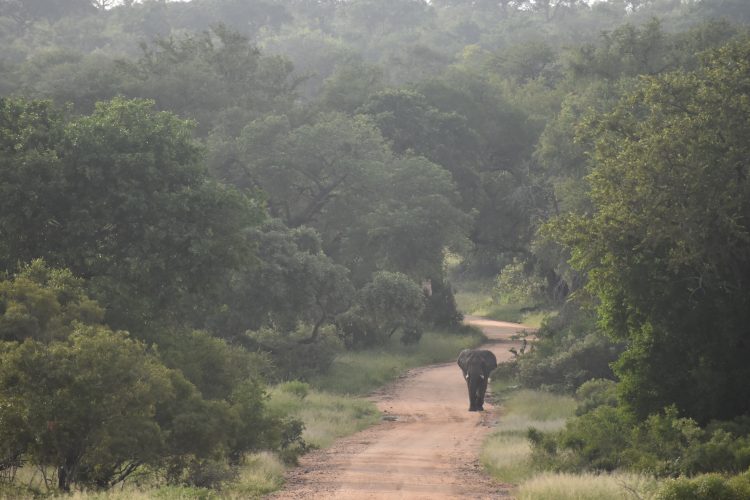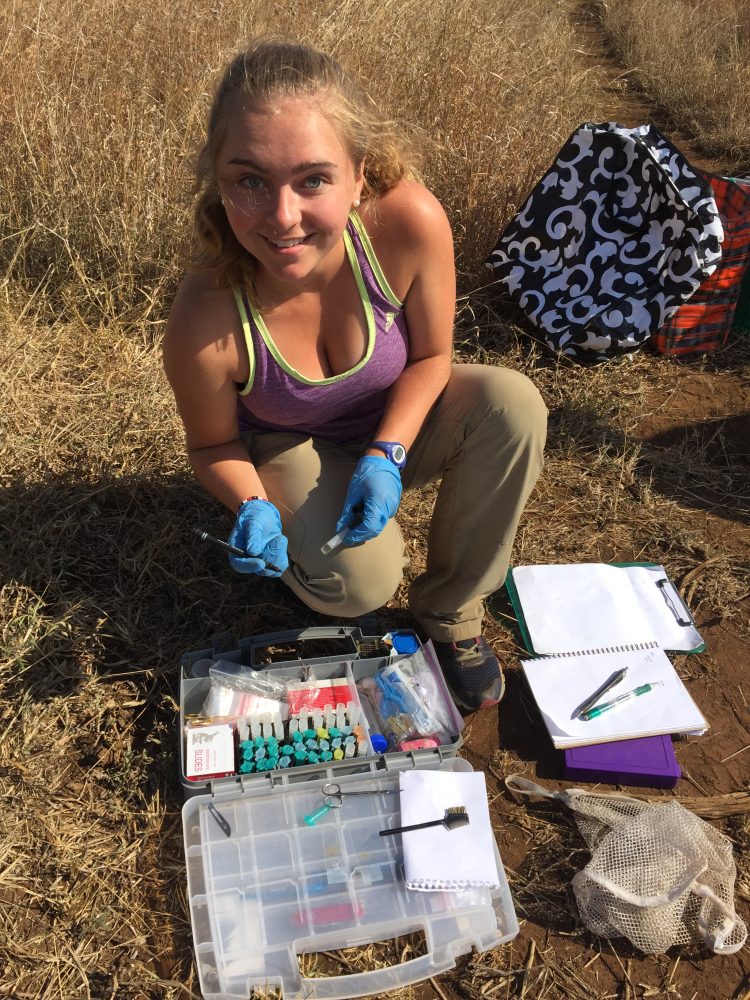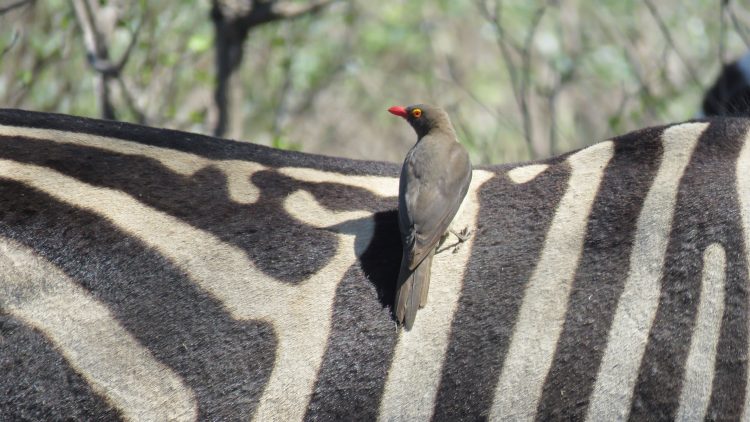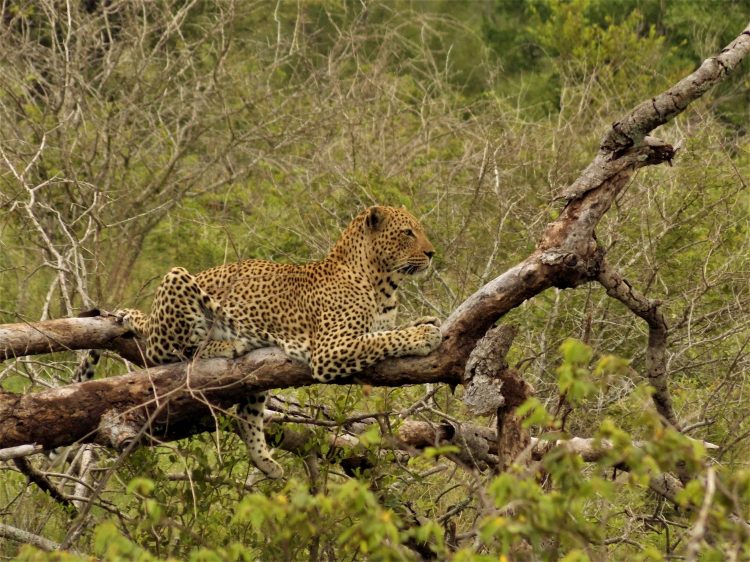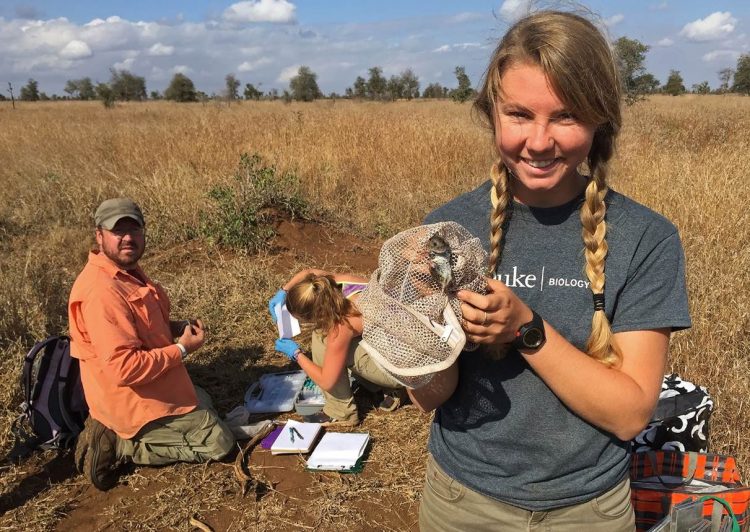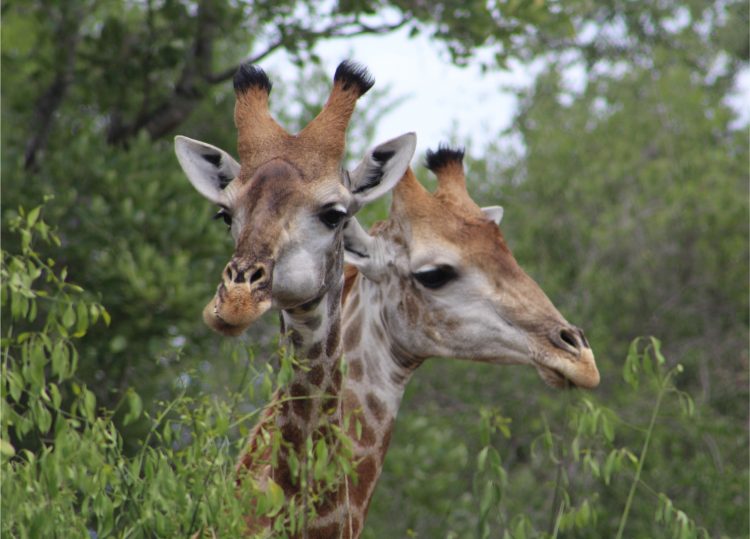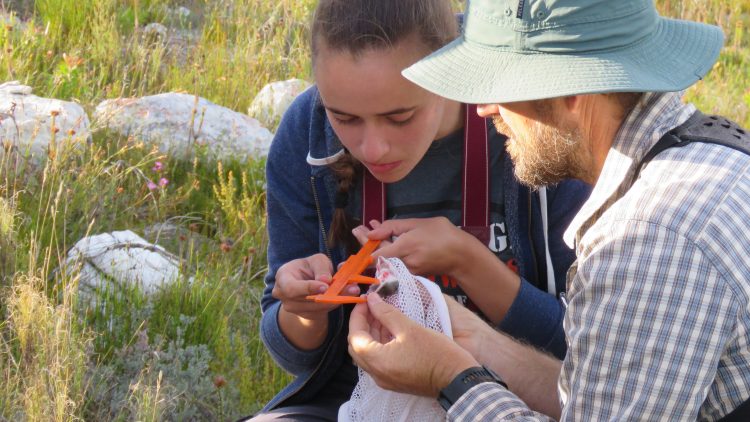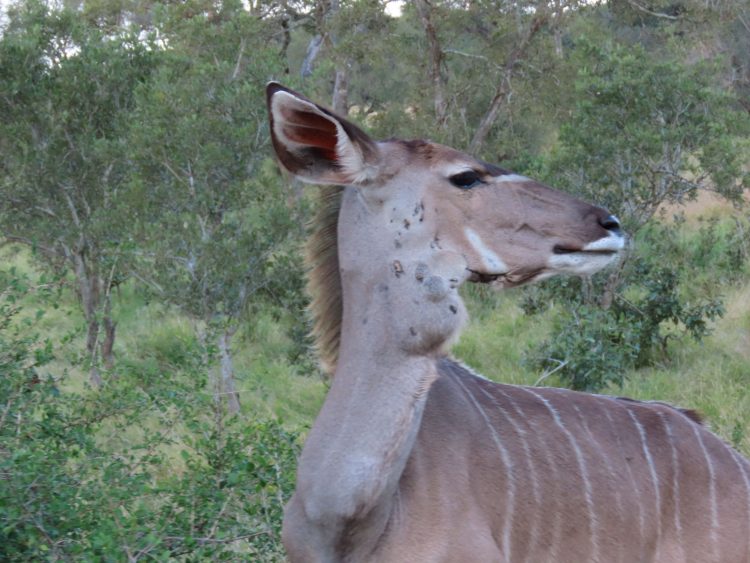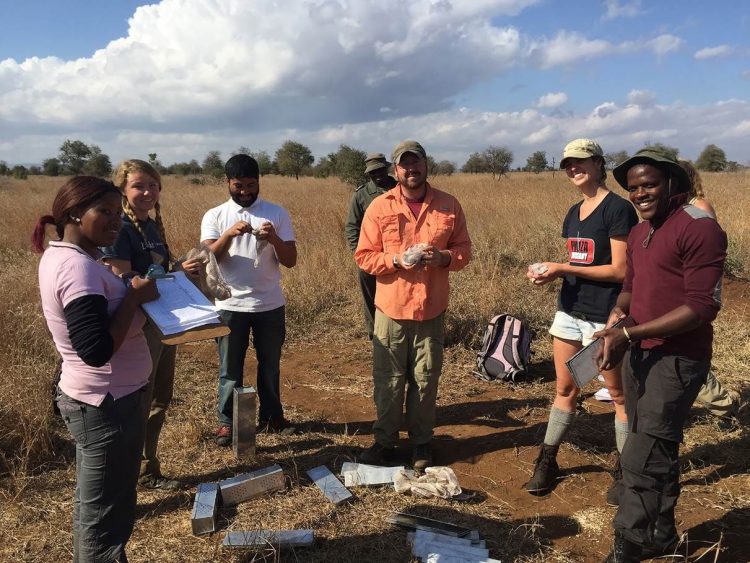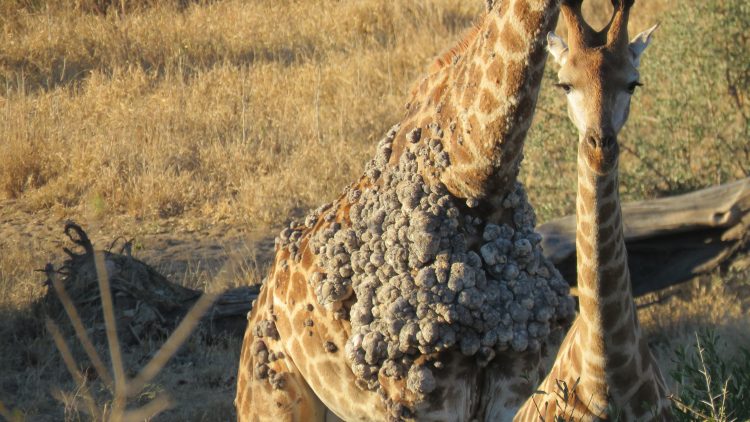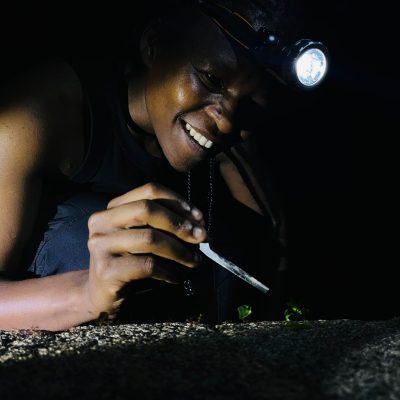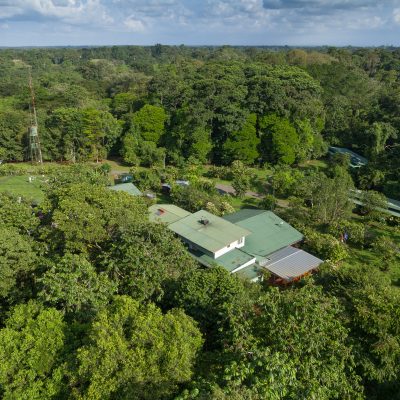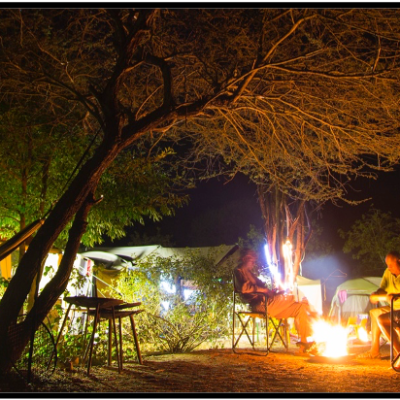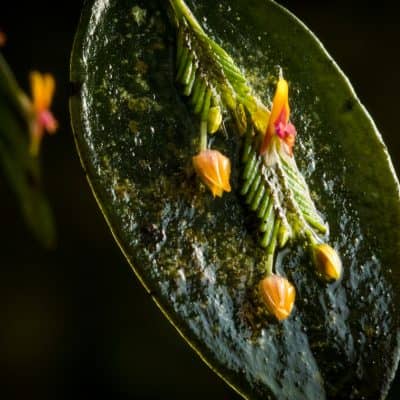Curriculum
This course aims to give aspiring wildlife ecologists, veterinarians, and reserve managers experience in engaging in disease research at the interface of wildlife, human, and livestock health. Specifically, it seeks to familiarize participants with the fundamentals of disease ecology and teaches relevant field skills and diagnostic tools using real-life examples from South Africa. The course will begin with a brief review of the fundamentals of biodiversity conservation, the drivers of change in natural ecosystems in southern Africa, and why a holistic framework for understanding disease dynamics is important. To gain practical experience, students will assist in analyzing faunal community data, blood and parasite samples, and camera trap images collected from across a land-use gradient. Participants will analyze the data and produce a research paper. Students will work independently on sample evaluation, data analysis, and report writing.
Learning outcomes
- An understanding of savanna ecology and the top-down role of disease as a natural phenomenon
- Field-based training in techniques to monitor ecological change and disease patterns at the interface between wildlife, humans, and livestock.
- An understanding of veterinary practice in a large game park fieldwork through participation in wildlife captures and health monitoring with veterinarians.
- Opportunities to engage in community outreach and One Health initiatives with communities bordering Kruger National Park.
- Understanding of ecological, social, and economic contexts influencing disease dynamics in changing environments.
- Training in applied molecular techniques to answer disease-related questions (optional 2-week module).
Prerequisites
Students must be in good standing with their home institution, at least 18 years of age, and have a minimum 2.7 GPA. Students applying to the Disease Ecology & Wildlife Management Field Practicum can be undergraduate upperclassmen (3rd or 4th years) or first-year graduate students enrolled in animal science, veterinary, or related programs. Students should have completed at least two semesters of related coursework by the start of the program. If you are unsure if you meet these requirements, please email field.practicum@tropicalstudies.org.
This 4-week course takes place in and around Kruger National Park.
Week 1: Skukuza:
Students spend the week understanding savanna ecology and the top-down effect of disease in natural systems, field lectures, and practical workshops. Students will join SANParks veterinarians during wildlife captures, gaining hands-on experience with wildlife health monitoring and management. We assess the burden of disease in wildlife and gain experience in wildlife veterinary work: field post-mortems, wild animal immobilization, and sample collection. Students contribute to long-term data collection in partnership with SANParks veterinary scientists and university partners.
Weeks 2 – 3: Skukuza and Manyaleti:
To understand the effects of land use change on the emergence of vector-borne diseases, students collect data and contribute to long-term data sets by collecting data on vegetation, small and meso-mammals (both wild and domestic), ticks as disease vectors, and their haemo– and ectoparasites.
Allied to this work is contributing to the management of disease in domestic stock. Students will also work with cattle farmers and communities bordering KNP and assist with data collection and health assessments of domestic species that live at the wildlife/livestock interface. Students will also participate in outreach activities with local communities to understand how diseases of veterinary importance can be effectively managed in this area.
Students work with Veterinary Impact Africa in the far north of the country on the Zimbabwean border with cattle farmers from Tshipise Village. The final week will focus on understanding livestock welfare, reproduction, and production. We will work closely with farmers from Tshipise, focusing on cattle work at dip tanks, goat herd health, and the dog rabies vaccine campaign.
Weeks 5-6 (Optional, Additional Cost):
Students have the option to stay for an additional 2 weeks, where they will be trained in basic molecular techniques to analyse samples collected in the field. Students will select a project of interest – small mammals, domestic species, or vectors – and work towards analysing and presenting their results.
Tuition
Program Cost:
4 Week program: $6,000 (possible to extend stay for additional cost)
Program cost includes:
- Room and board
- Local travel to program sites
- Participation of many local and international researchers, experts, and professionals
Program cost does not include:
- International travel
- Independent travel
- Incidentals
- Personal spending
Expected Additional Expenses:
- International Round-trip Flight $1,500 (approx.)
- Immunizations $50 (approx.)
- Additional Food $50 (approx.)
- Miscellaneous $50 (approx.)
Total Expected Additional Expenses: $1,650
Faculty
Liezl Retief, Ph.D.
Ph.D. Zoology, University of Pretoria
liezl.retief@tropicalstudies.org
Dr. Retief is a disease ecologist originally from Pretoria. She recently completed her Ph.D. in Zoology which investigated the diversity, occurrence, and potential routes of transmission of potentially zoonotic haemoparasites cycling in indigenous and invasive rodents across various environments. Her research interests include understanding the impact of anthropogenic modification on ecosystems, wildlife, livestock, and human health, especially at the wildlife/livestock/human interface. She has a background in molecular biology and enjoys using a multidisciplinary approach, integrating molecular techniques with other methods, to answer conservation, ecological and epidemiological-related questions across a range of taxa (including viruses, bacteria, fungi, ticks, fleas, flies, mosquitoes, crustaceans, reptiles, birds, and mammals). She loves teaching biology and ecology and traveling around South Africa. She is a keen succulent enthusiast!
Laurence Mohr Kruger, Ph.D.
Ph.D. Botany, University of Cape Town
laurence.kruger@tropicalstudies.org
Dr. Kruger is the Director of Curriculum for OTS and is based in Skukuza, Kruger National Park. His primary interests lie in functional ecology and how species response to disturbance. His interests lie specifically on the demography of woody plants in a variety of South Africa biomes, the bottlenecks imposed in each system, and which traits are critical in overcoming them. During his Ph.D., Dr. Kruger focused on the importance of re-sprouting in South African coastal forests, fynbos, and savannas. His current work is focused on the impact that elephants and fire have on savannas and how resilient plants and communities might be in response to this disturbance. Allied to this is work on the impact of the loss of vegetation complexity on resident faunal communities. A large portion of Dr. Kruger’s private consulting work has been in the field of conservation, in particular conservation planning. This work has included surveys of natural habitats (biodiversity surveys), identifying the threats (development, habitat transformation, alien vegetation/faunal invasives), and the setting of conservation targets. This work has provided him with the opportunity to become more actively involved in conservation while still engaging on a theoretical level.
Born into a family of biologists and humanitarians, Dr. Kruger has followed his passion for both by running field based, experiential learning programs in and around South Africa. Given the challenges facing education institutions (lack of resources, limited access to the field) and the barriers to education many students face, he sees OTS’ goal to be the dismantling of these obstacles.
In delivering life-changing, academically rigorous field courses, Dr. Kruger aims for OTS programs to provide experiences that allow for growth in aspirations for students and academics alike. He feels strongly that we need to rethink our role in society and return our focus to humanity, rather than self-actualization, and how we could contribute to others. Aside from focusing on quality, integrity, and creativity, Dr. Kruger has found that the single most important ingredient in education is to have fun.
Housing & Meals
Housing varies with each site. Students will be accommodated in rooms of two to six persons. All meals are provided by our travelling caterers. Provision is made for all dietary requirements, and meals includes breakfast, lunch, and dinner. During field days, a packed lunch will be provided. Any personal snacks and drinks are the responsibility of students.
Passport & Visa Information
You must have a valid passport, and it must not expire for at least six months after the end date of the program. Most students will receive a 90-day tourist visa when entering the country, which will cover you for the length of the program. If you are not a U.S. citizen, please contact us and the South African Consulate to learn what will be required to receive your visa.
Health & Safety
OTS is deeply committed to student safety and well-being. We do not expose students to unnecessary danger or risk. We monitor national and international events that might affect our students. Five decades of risk assessment, emergency response, and crisis resolution have enabled OTS to maximize student safety and security. All students are required to be fully vaccinated against Covid-19, and participate in an onsite orientation program upon arrival in South Africa. For our most current safety information, contact the OTS Enrollment Management staff at field.practicum@tropicalstudies.org.


